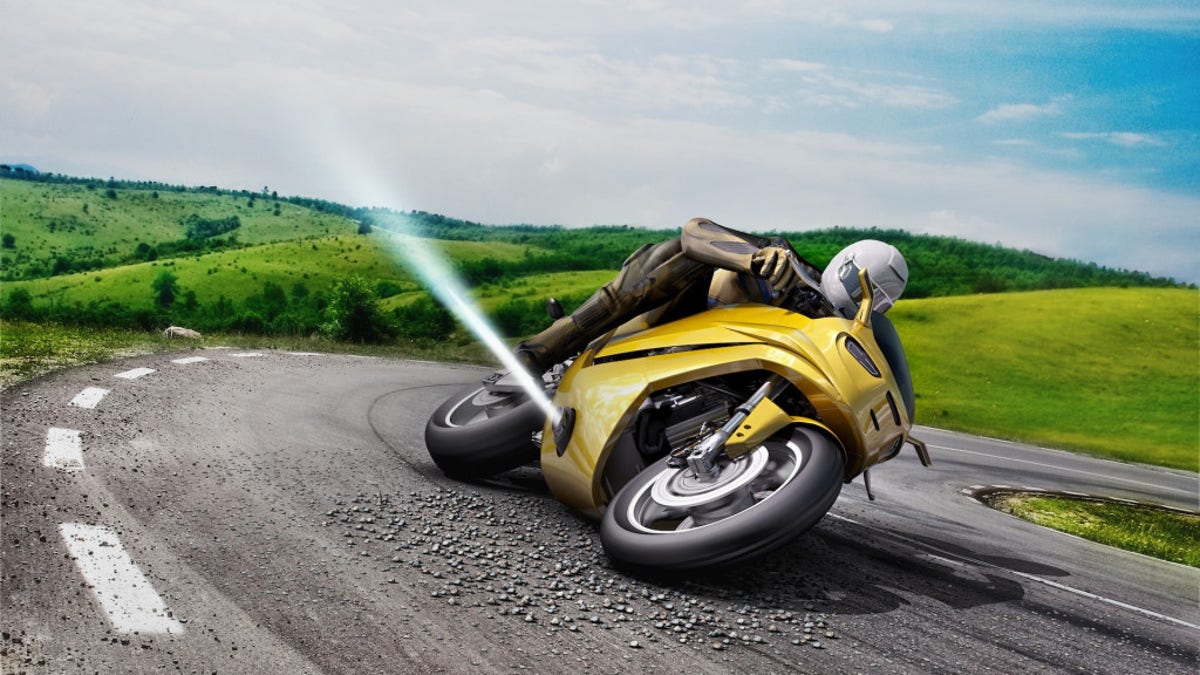
(Bosch)
Auto industry supplier Bosch is working on some pretty experimental technology to keep motorcyclists safer, and one of the projects involves air jets.
Yes, air jets on a motorcycle. Bosch revealed the experimental project last Thursday. It uses a sensor to detect wheel slip. When the motorcycle's wheels begin to slide sideways, due to gravel, rain, or other slick conditions, it loses lateral tire friction and it that can make it difficult for the rider to right the bike. Without enough lateral friction, a crash ensues and the bike spills onto the road.
However, the air jets could change this. Officially called the "sliding mitigation research project," Bosch envisions the sensor would detect slip. Once the bike exceeds a threshold of slip, gas releases from an accumulator similar to the units found in passenger-car airbags. The gas flows into a tank adapter and is released through a nozzle, providing enough force to keep the motorcycle from losing control. The air jet comes out on the side opposite the way the bike is leaning and provides reverse thrust.
Basically, the gas counteracts the skid and keeps the bike upright when things go wrong. Like a car's airbag, the motorcycle can only use the air jet once. Bosch didn't provide its vision for how a rider would replace the part.
Though the sliding mitigation research project is certainly the most ambitious piece of technology, Bosch also detailed a few other systems in the works for motorcycles. They include adaptive cruise control, a collision warning system, and blind-spot recognition.
One day, Bosch also hopes to introduce motorcycle-to-car communication. The company foresees a day when the system will warn drivers of motorcycles miles before the motorcycle comes into the car's view. Vehicle type, speed, position, and direction of travel are some of the information nuggets M2C technology could provide.